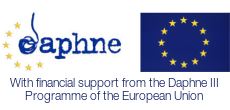The main value of the Project is the priority protection of children's rights in all cases when a child has already entered or is at risk of entering the Justice system and criminal contacts. In order to achieve the objectives, the Project activities are divided into 4 work streams: 1. European field study, researchers from 5 European countries gather the examples of innovative methods, tools and practices in their countries to share the experience among the specialists from Europe; the study includes 2 steps: the analysis of rights and practice in European countries (UK, Netherlands, Latvia, Lithuania, Estonia) and the result analysis from the pilot projects activities; 2. Implementation of best practices and tools (specialists develop networks during the Project to strengthen the understanding of each good practice, tool or method from the European field study and decide on implementing them in the pilot places); 3. Three pilot projects implement the good practice, tools, methods identified by the researchers for the work with children. 4. Public education campaign (publications of research in English an Project booklet in Latvian, Lithuanian and Estonian; presentations of the booklets; final conference on the Project results (Brussels, 100 participants); educational film on the course of the Project activities which will be available for public and educational use thus ensuring the sustainability of Project results).
Overall objective: To find, identify and apply the best European practices in work with the children from risk groups thus improving the welfare and social inclusion of the children, reducing risks for crime and rejection, and creating safer environment for a successful child development within Europe.
Objectives:
1) To promote intense exchange of information and networking among the specialists of children’s affairs in Europe;
2) To develop a common understanding among the specialists of children’s affairs on the implementation of the rights and values recognised in the Charter of Fundamental Rights of the EU;
3) To find and implement practical, innovative, inclusive approaches in order to prevent children contiguity with crime, including the methods for the work with at-risk children in rural areas;
4) To enhance the understanding of European law enforcement agencies, specialists, mass media, NGOs, social services, educational institutions and other specialists working in the field of children’s affairs on the benefits when using not punitive but inclusive Juvenile Justice approach (the term “Juvenile Justice” is used in a broad sense and is defined, according to the Council of Europe’s Recommendation Rec (2003) 20 concerning new ways of dealing with youth).
Expected results: identified good practices working with children from risk groups and risk situations in 10 European countries; summary and analysis of the practice; training for the specialists of children’s affairs from the Project partner countries; developed network for practitioners and researchers for future cooperation.
Main outputs: 3 trainings and 2 workshops for professionals, 2-day Final event (1 day Conference and 1 day Round table) in Brussels. Deliverables: Scientific-practical European field study (245 pages), translation of the study in 3 national languages (50 pages) and a tutorial (educational film) to disseminate project results.
- International Observatory of Juvenile Justice (Belgium);
- Centre for Public Policy PROVIDUS (Latvia);
- Ministry of Justice (Estonia);
- International Child Development Initiatives (NL)
- Children Support Centre (Lithuania)
- University of Edinburgh (UK);
- State Inspectorate for Protection of Children`s Rights (Latvia)
- Saldus County Council (Latvia);
- Cēsu County Council (Latvia);
- Madona County Council (Latvia).
